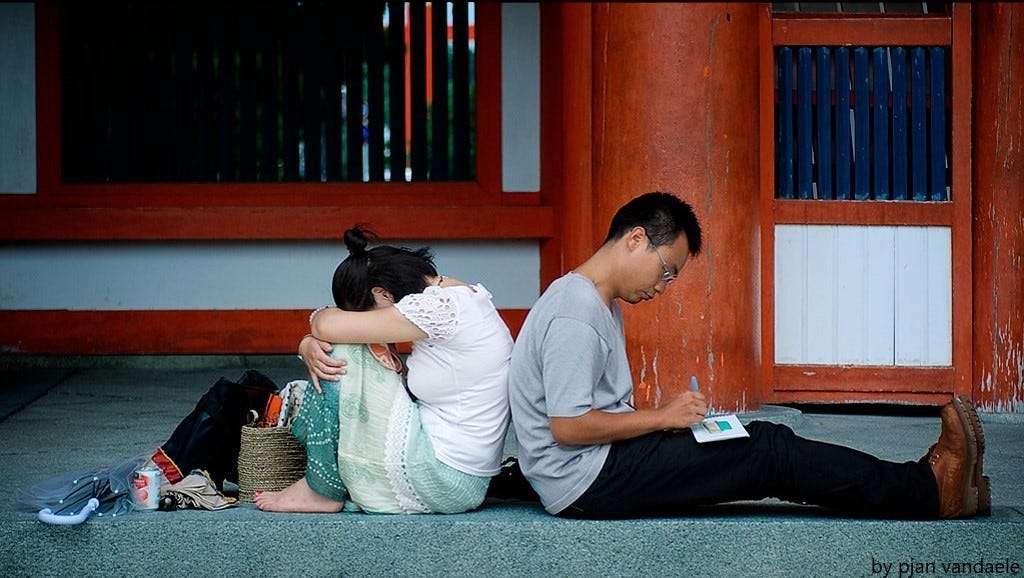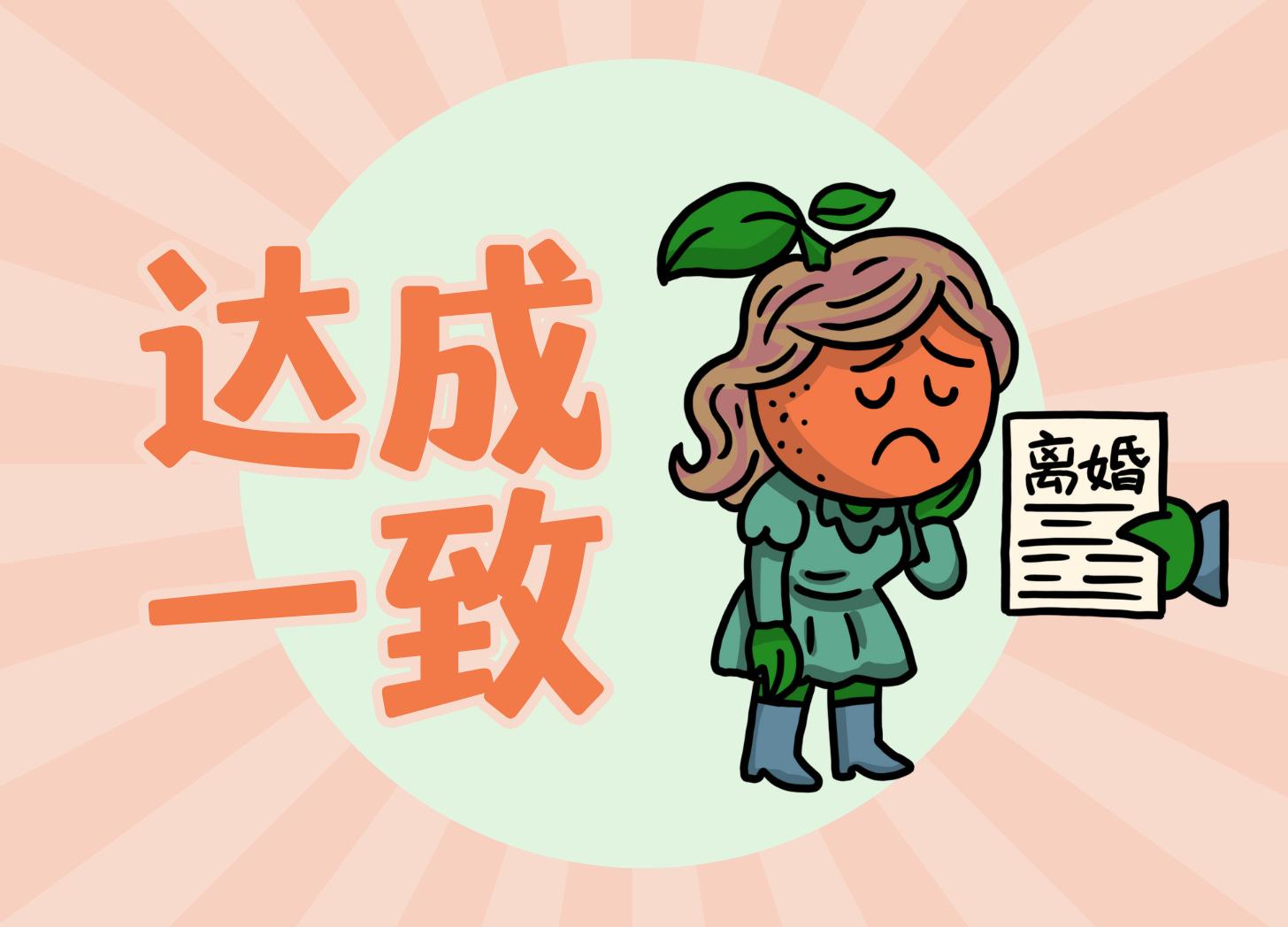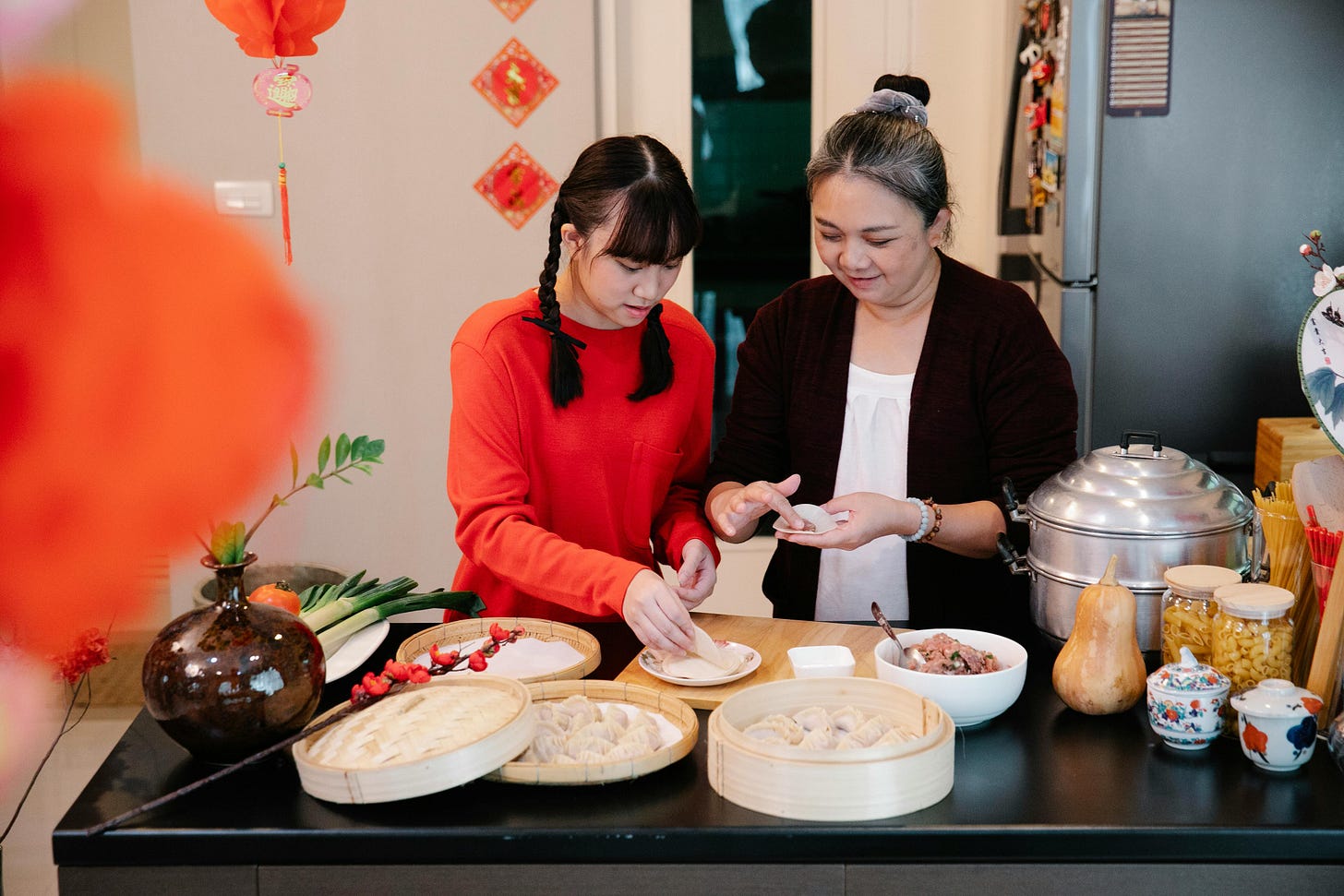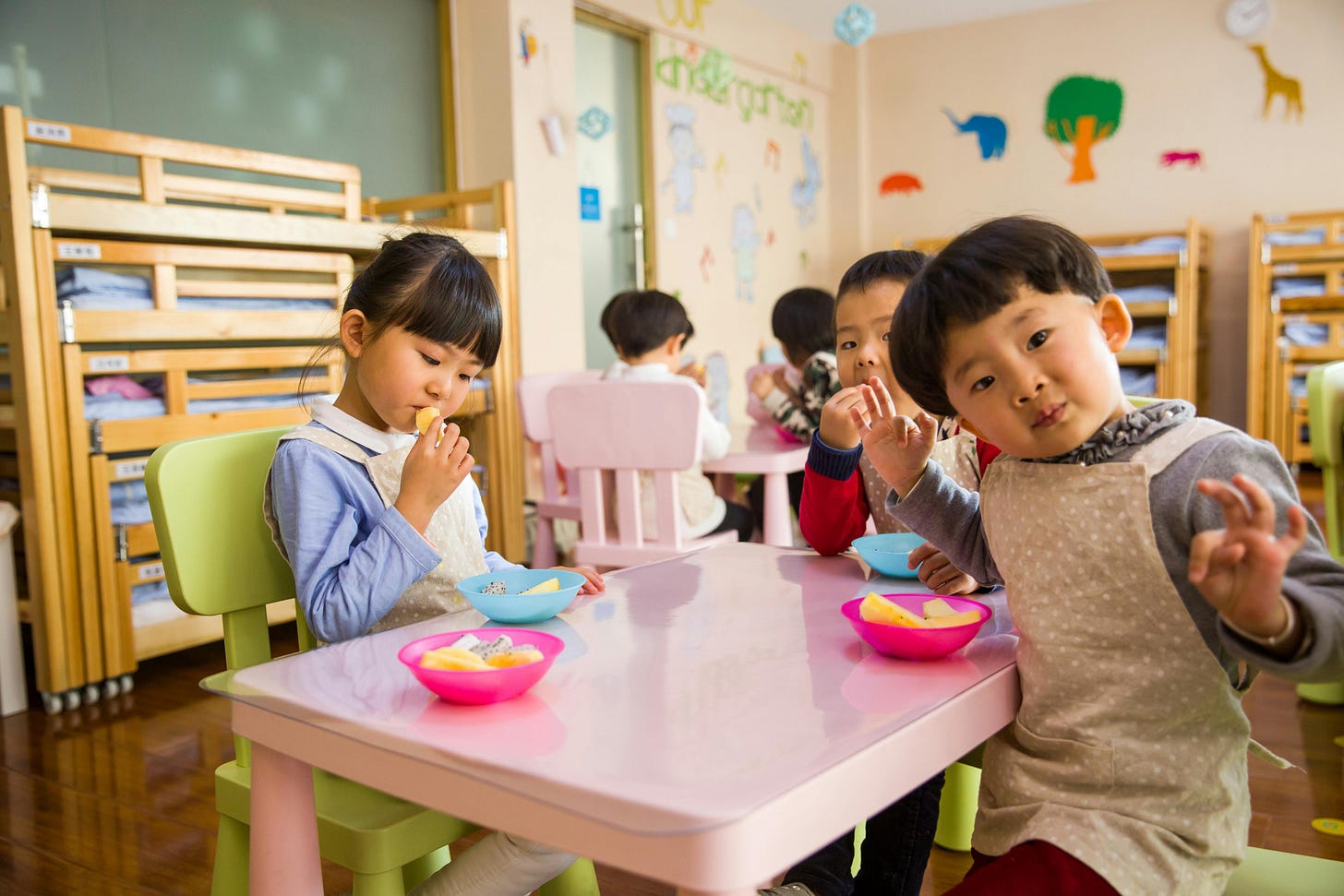Understanding China's New Divorce Law
Does a divorced spouse have a 50/50 right to the property in China? ⛓️💥
Word of the week: 达成一致 (dáchéng yízhì)
Meaning: to reach consensus.
子女教育等重大事项达成一致。Reach an agreement on major matters such as children's education.
We know that you are a follower of everything China-related, so you must have heard the news about China’s new divorce law that came in power last July. Western media gave a lot of coverage to the new property law: indeed, under special circumstances, property rights may not be divived 50/50 between spouses in case of a divorce. However, there is more to the story: the new law also for the very first time recognizes the value of unpaid household labour.
What other major things have changed?
全国人大常委会审议通过了《中华人民共和国民法典婚姻家庭编修正案》,该修正案将于2025年7月1日正式实施。这次修订被业内人士视为中国婚姻家庭法律制度的一次重大变革,涉及财产分割、子女抚养、离婚冷静期等多个方面,将深刻影响千家万户的婚姻生活。
全国人大常委会 (quánguó réndà chángwěihuì) – Standing Committee of the National People's Congress
审议 (shěnyì) – to review; to deliberate
修正案 (xiūzhèng'àn) – amendment
财产分割 (cáichǎn fēngē) – division of property
子女抚养 (zǐnǚ fǔyǎng) – child custody; raising of children
冷静期 (líhūn lěngjìngqī) – cooling-off period
千家万户 (qiānjiā wànhù) – idiom meaning "countless families"
The Standing Committee of the National People's Congress has reviewed and passed the Amendment to the Marriage and Family Section of the Civil Code of the People's Republic of China, which will officially take effect on July 1, 2025. This revision is regarded by legal professionals as a major reform of China's marriage and family legal system. It addresses several key areas, including property division, child custody, and the divorce cooling-off period, and is expected to have a profound impact on the marital lives of millions of households.

第一项重大变革:夫妻共同财产认定标准细化
新规对夫妻共同财产的认定标准进行了更为细致的规定。在原有"婚后所得共同所有"原则基础上,进一步明确了几类特殊情况。2025年的新规定,将婚前一方父母出资为子女购买的不动产,按照父母明确表示赠与一方的,认定为该方个人财产;若无明确表示,则视为对夫妻双方的赠与,属于共同财产。
夫妻共同财产 (fūqī gòngtóng cáichǎn) – marital property; jointly owned property of spouses
认定标准 (rèndìng biāozhǔn) – criteria for determination
细化 (xìhuà) – to refine; to make more detailed
婚后所得 (hūnhòu suǒdé) – post-marital income; property acquired after marriage
父母出资 (fùmǔ chūzī) – parental financial contribution
不动产 (bùdòngchǎn) – real estate; immovable property
赠与 (zèngyǔ) – to gift; a gift
个人财产 (gèrén cáichǎn) – personal property
Major Reform #1: More Detailed Criteria for Determining Marital Property
The new regulations provide a more detailed definition of what constitutes marital property. Building upon the original principle that “property acquired after marriage is jointly owned,” the 2025 amendment further clarifies several special cases.
For instance, if one party’s parents contribute funds to purchase real estate for their child before the marriage, and they explicitly state that the gift is intended for their child alone, it will be recognized as that party’s personal property. However, if no clear intention is expressed, the contribution will be presumed to be a gift to both spouses, and the property will be considered marital property.
北京市第二中级人民法院发布的数据显示,2024年涉及不动产分割的离婚案件中,有78%存在婚前父母出资购房的情况,这一规定将大大减少相关纠纷。同时,新规还规定了个人知识产权的收益分配方式,明确将知识产权本身属于个人财产,但婚姻关系存续期间产生的收益属于夫妻共同财产。
涉及 (shèjí) – to involve
离婚案件 (líhūn ànjiàn) – divorce case
纠纷 (jiūfēn) – dispute
个人知识产权 (gèrén zhīshì chǎnquán) – personal intellectual property
收益分配 (shōuyì fēnpèi) – profit distribution
存续期间 (cúnxù qījiān) – during the duration (of marriage)
According to data released by the Beijing No. 2 Intermediate People's Court, in 2024, 78% of divorce cases involving real estate division included situations where parents had contributed funds to purchase a home before the marriage. The new regulation is expected to significantly reduce disputes related to such cases. At the same time, the new rules also clarify how income from personal intellectual property should be handled. Specifically, the intellectual property itself remains the personal property of the individual who owns it, but any income generated from it during the marriage is considered marital property.
第二项重大变革:离婚财产分割考量家务劳动价值
新修订的婚姻法首次在法律层面明确了家务劳动的经济价值。根据规定,在分割夫妻共同财产时,法院将考虑承担较多家务劳动一方的付出,给予适当补偿。这一规定对全职在家抚养子女、照顾老人的一方提供了更加有力的法律保障。
考量 (kǎoliáng) – to take into account; to consider
家务劳动 (jiāwù láodòng) – household labor
修订 (xiūdìng) – to revise
法律层面 (fǎlǜ céngmiàn) – legal level
承担 (chéngdān) – to take on; to bear
适当补偿 (shìdàng bǔcháng) – appropriate compensation
全职 (quánzhí) – full-time
法律保障 (fǎlǜ bǎozhàng) – legal protection
Major Reform #2: Recognition of the Economic Value of Household Labor in Divorce Property Division
For the first time, the revised Marriage Law explicitly recognizes the economic value of household labor at the legal level. According to the new provision, when dividing marital property, the court will take into account the efforts of the spouse who has taken on a greater share of household duties and grant them appropriate compensation. This regulation provides stronger legal protection for those who stay at home full-time to raise children or care for elderly family members, ensuring that their non-monetary contributions to the marriage are fairly considered during divorce proceedings.
2024年全国妇联发布的《中国家庭劳动价值调查报告》显示,我国女性平均每天花费在家务劳动上的时间为4.2小时,是男性的2.7倍。而这些劳动如果市场化计价,每月价值约为8730元。新规将这种无形劳动纳入财产分割考量因素,体现了对家庭付出的尊重。
全国妇联 (quánguó fùlián) – All-China Women's Federation
调查报告 (diàochá bàogào) – survey report
是……的倍 (shì... de bèi) – (used for multiples) is ... times as much
市场化 (shìchǎng huà) – market-based; marketized
计价 (jìjià) – to price; to value
无形劳动 (wúxíng láodòng) – invisible labor
纳入 (nàrù) – to include; to incorporate into
考量因素 (kǎoliáng yīnsù) – consideration factor
体现 (tǐxiàn) – to reflect; to embody
According to the 2024 China Household Labor Value Survey Report released by the All-China Women's Federation, Chinese women spend an average of 4.2 hours per day on household labor, which is 2.7 times more than that of men. If this labor were valued at market rates, its monthly worth would be approximately 8,730 yuan. The new regulation includes this kind of invisible labor as a factor in the division of marital property, reflecting a growing recognition and respect for contributions made within the family.
第三项重大变革:子女抚养权判决标准更加多元
在涉及未成年子女抚养权的争议中,新规不再简单以"两岁以下归母亲"为主要考量因素,而是确立了"子女最大利益原则"。法院在判决时将综合考虑子女年龄、父母抚养能力、子女意愿等多种因素。
子女抚养权 (zǐnǚ fǔyǎngquán) – child custody
未成年子女 (wèichéngnián zǐnǚ) – minor children
归 (guī) – to be assigned to; to belong to
确立 (quèlì) – to establish
法院 (fǎyuàn) – court
判决 (pànjué) – to make a judgment
综合考虑 (zōnghé kǎolǜ) – to consider comprehensively
子女意愿 (zǐnǚ yìyuàn) – the child’s preference
Major Reform #3: More Diverse Criteria for Child Custody Decisions
In disputes involving the custody of minor children, the new regulation no longer relies solely on the traditional assumption that children under the age of two should be placed with the mother. Instead, it introduces the principle of serving the best interests of the child as the core guideline. Courts will now take into account a variety of factors when making custody decisions, including the child’s age, each parent’s ability to provide care and the child’s own preferences.
尤为引人注目的是,新规明确规定了"共同抚养"模式,允许在特定条件下由父母双方轮流抚养未成年子女。最高人民法院发布的司法解释指出,共同抚养要求父母双方住所距离较近,有稳定的经济来源和生活条件,且能够就子女教育等重大事项达成一致。
尤为引人注目 (yóuwéi yǐn rén zhùmù) – particularly noteworthy
共同抚养 (gòngtóng fǔyǎng) – joint custody
允许 (yǔnxǔ) – to allow; to permit
特定条件 (tèdìng tiáojiàn) – specific conditions
轮流抚养 (lúnliú fǔyǎng) – take turns raising (a child)
最高人民法院 (zuìgāo rénmín fǎyuàn) – Supreme People's Court
司法解释 (sīfǎ jiěshì) – judicial interpretation
住所距离 (zhùsuǒ jùlí) – residential distance
经济来源 (jīngjì láiyuán) – source of income
达成一致 (dáchéng yízhì) – to reach consensus
What is particularly noteworthy is that the new regulation explicitly introduces a "joint custody" model, allowing both parents to take turns raising minor children under specific conditions. According to the judicial interpretation issued by the Supreme People’s Court, joint custody requires that both parents live in close proximity, have stable financial resources and living conditions, and are able to reach agreements on major issues related to the child’s upbringing, such as education.
2025年1月,深圳市中级人民法院在一起抚养权纠纷案中首次适用了这一规定,判决由父母双方每月轮流抚养10岁的儿子,开创了我国家事审判的先例。心理学研究表明,在父母关系相对和睦的情况下,共同抚养模式有利于减轻子女的分离焦虑,维护亲子关系的完整性。
首次适用 (shǒucì shìyòng) – applied for the first time
开创 (kāichuàng) – to initiate; to pioneer
家事审判 (jiāshì shěnpàn) – family law trial
先例 (xiānlì) – precedent
心理学研究 (xīnlǐxué yánjiū) – psychological research
相对和睦 (xiāngduì hémù) – relatively harmonious
有利于 (yǒulì yú) – to be beneficial to
减轻 (jiǎnqīng) – to alleviate; to lessen
分离焦虑 (fēnlí jiāolǜ) – separation anxiety
亲子关系 (qīnzǐ guānxì) – parent-child relationship
In January 2025, the Shenzhen Intermediate People's Court applied this provision for the first time in a child custody dispute, ruling that the parents would take turns alternating custody of their 10-year-old son on a monthly basis. This decision set a precedent in China’s family law system. Psychological studies have shown that, when parents maintain a relatively harmonious relationship, the joint custody model can help reduce separation anxiety in children and preserve the integrity of the parent-child relationship.
Antoine & Dorota
Referenced author(s): 小芳聊生活











These news tidbits are really interesting, but as someone whose mandarin is around HSK 4 there are soooo many new words. I would find it really helpful if there was also a pinyin version. It would make it easier to search up the new words and get the feel of reading.
Thanks and keep it up!